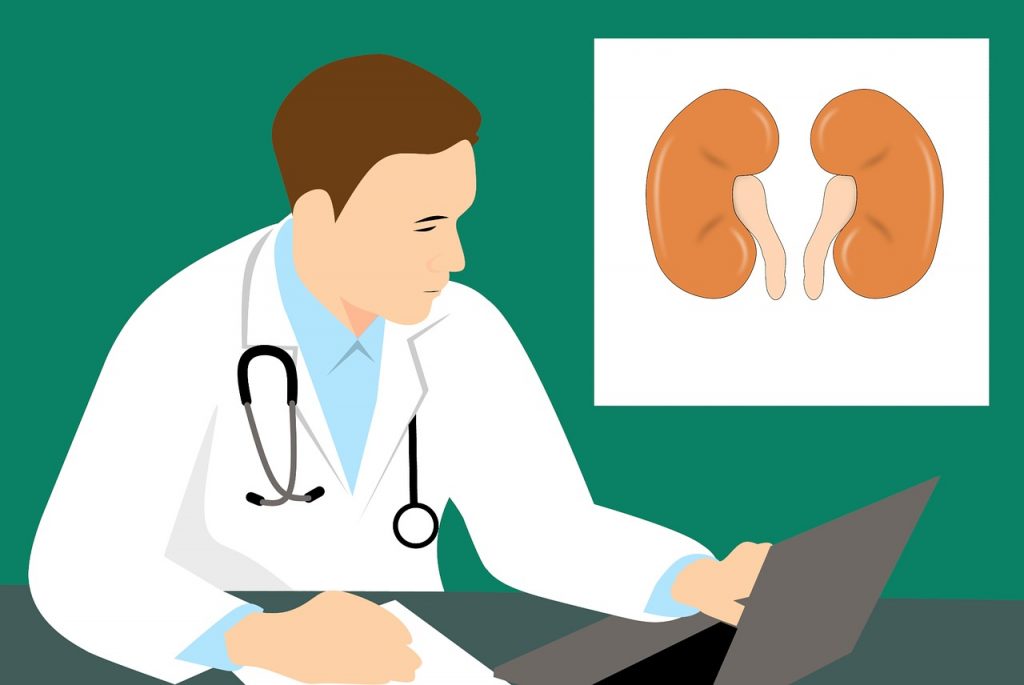The kidneys are the body’s filter system.
You could imagine what would happen to a swimming pool if the filter had broken down. The water will go off and become a very green colour and you probably wouldn’t want to swim in it. You could imagine if the kidneys were to break down, that’s going to be a serious problem for the body. Renal failure will lead to death if it isn’t managed. Once upon a time, that’s exactly what would happen.
Today we know that people can have kidney transplants and other people may go onto dialysis. Dialysis is a form of treatment where an external machine takes over the role of filtering the blood. But before we get to those stages, what’s really important is can we look after our kidneys and perhaps not reach that stage? The short answer is ‘yes’.
The leading cause and reason for people to be on dialysis in Australia is diabetic kidney disease. We also know that managing diabetes is the best way of not ending up with end stage renal disease. Managing your diabetes through diet, exercise and maintaining good blood sugars is also good for your kidneys. Other conditions that can lead to kidney problems are: High blood pressure so again, managing high blood pressure and keeping it under control, either through weight loss and dietary measures, together with exercise and for some people, medication as well. It’s not only going to be good for your heart and reduce your risk of a heart attack and stroke, but it’s going to be good for your kidneys too.
There are a whole range of other kidney conditions, some of which have a genetic basis; some of which are called autoimmune conditions. Most of them are thankfully fairly rare. And again, depending upon which one, they can be managed and treated accordingly.
What are some basic things that you can do for you kidneys?
Making sure that you’re drinking enough water each day. It really is number 1, 2 and 3. A little bit like the filter in the pool, if it’s sucking in air and not enough water, it’s not going to work as well. So flushing the kidney system through by drinking plenty of water is important. There are exceptions, and in some cases people are advised to restrict their fluids but for people who are otherwise fit, well and healthy, then your standard is roughly 30 mL per kilogram body weight per day or slightly more if exercising.
Maintaining a sensible diet as we spoke about before is good for your kidneys. Not eating too much protein, and again people will argue about what constitutes too much but excess nitrogen in the diet can put extra load on the kidneys.
So looking after your kidneys is not that difficult. In fact, these things that are good for your kidneys are generally the same things that are good for your heart, your brain, your blood pressure and for preventing diabetes.
It’s the same old chestnuts but they’re worth repeating again.
A sensible diet with fruit and vegetables, nut seeds and berries, not too much meat, drinking plenty of water, going easy on the alcohol, not smoking, and doing some regular exercise. So you get a lot of bang for your buck out of doing the basics.
We need our kidneys. When they’re not there, it is a very serious problem. Treatment is much better today than previous years and we talked before about dialysis and kidney transplants and it’s wonderful we can do that these days. It’s even better if we can maintain and look after our own kidneys and have them for as long as we live.
All content and media on the HealthEngine Blog is created and published online for informational purposes only. It is not intended to be a substitute for professional medical advice and should not be relied on as health or personal advice. Always seek the guidance of your doctor or other qualified health professional with any questions you may have regarding your health or a medical condition. Never disregard the advice of a medical professional, or delay in seeking it because of something you have read on this Website. If you think you may have a medical emergency, call your doctor, go to the nearest hospital emergency department, or call the emergency services immediately.







